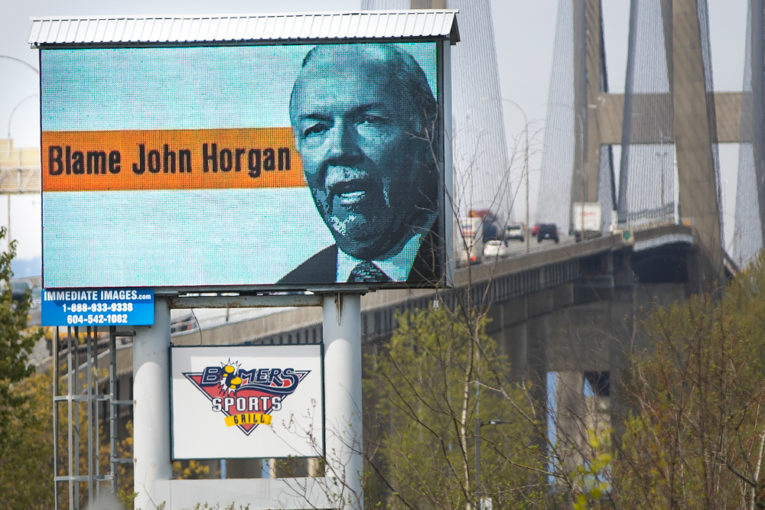
A political brawl between British Columbia and Alberta over a stalled pipeline expansion is being blamed for handing Vancouver a somewhat dubious municipal distinction.
The city recently recorded the highest retail gasoline price on record for a major North America metro, according to GasBuddy, a motor-fuel pricing website. The price hit almost $1.70 a litre, a bit higher than the US$4 a gallon seen in Los Angeles, traditionally one of the most expensive U.S. markets.
A series of refinery shutdowns along the West Coast of North American have sent pump prices surging from San Diego to Seattle. But Vancouver was hit hardest at a time when its provincial leaders are locked in a duel with oil-rich Alberta over an expansion of the Trans Mountain Pipeline.
“If you want to keep blocking pipelines, than you can expect to continue to pay through the nose at the hose,” said Dan McTeague, a senior petroleum analyst at Gas Buddy. The expansion would allow as much as 50,000 more barrels a day of gas and diesel to flow into the Vancouver area, he said.
“No city has ever hit that high,” McTeague said.
Marc Lee, a B.C.-based senior economist with the Canadian Centre for Policy Alternatives, said in a note that Alberta’s refiners are using any excuse from routine maintenance to bad weather to boost prices. “Companies are charging higher prices because they can get away with it,” he said in a note titled “Turn off the taps? Alberta already has Vancouver over a barrel.”
Vancouver, Canada’s third-largest city, hosts just one 52,000 barrel-a-day refinery and must rely on limited gasoline shipments across the Rocky Mountains from Alberta as well as imports from fuel plants in Washington state.
Taxes add to the problem as they exceed 50 cents a litre to fuel bought in the city, McTeague said.
The cost of living has long been an explosive issue in Vancouver, which has the highest home prices with some of the lowest wages of Canada’s biggest cities. Public outrage over affordability helped Premier John Horgan’s New Democratic Party take power in 2017, ending 16 years of Liberal Party rule.
“This line up to get you GAS is brought to you by John Horgan,” screams a yellow and white billboard going up at a Canada-U.S. border crossing south of Vancouver where drivers have been crossing to fill up in Washington state, where gasoline is cheaper.
Contentious Issue
British Columbia has opposed the Trans-Mountain expansion over environmental concerns, while Alberta supports it as a way to aid its struggling oil producers. The issue has grown so contentious that Alberta’s new Conservative Premier Jason Kenney proclaimed a bill into law Tuesday that would allow his government to cut oil flows to B.C. if the province continues to stand in the way of the project.
British Columbia swiftly responded, filing a statement of claim in a Calgary court, suing Alberta for its so-called turn-off-the-taps legislation, calling it unconstitutional.
Last week, before he was sworn in as Alberta’s Premier, Kenney tweeted that the solution to high B.C. gasoline prices is to expand the Trans Mountain Pipeline. The remark was a dig at Horgan, who’s made blocking Trans Mountain a key goal of his administration.
“There is no magic endless supply of refined gasoline products in Alberta or Washington state or, for that matter, anywhere else in an area that would allow us to see more refined product come here,” Horgan said in parliament last week, when asked about the pipeline project.
Bloomberg.com
You can read more of the news on source
